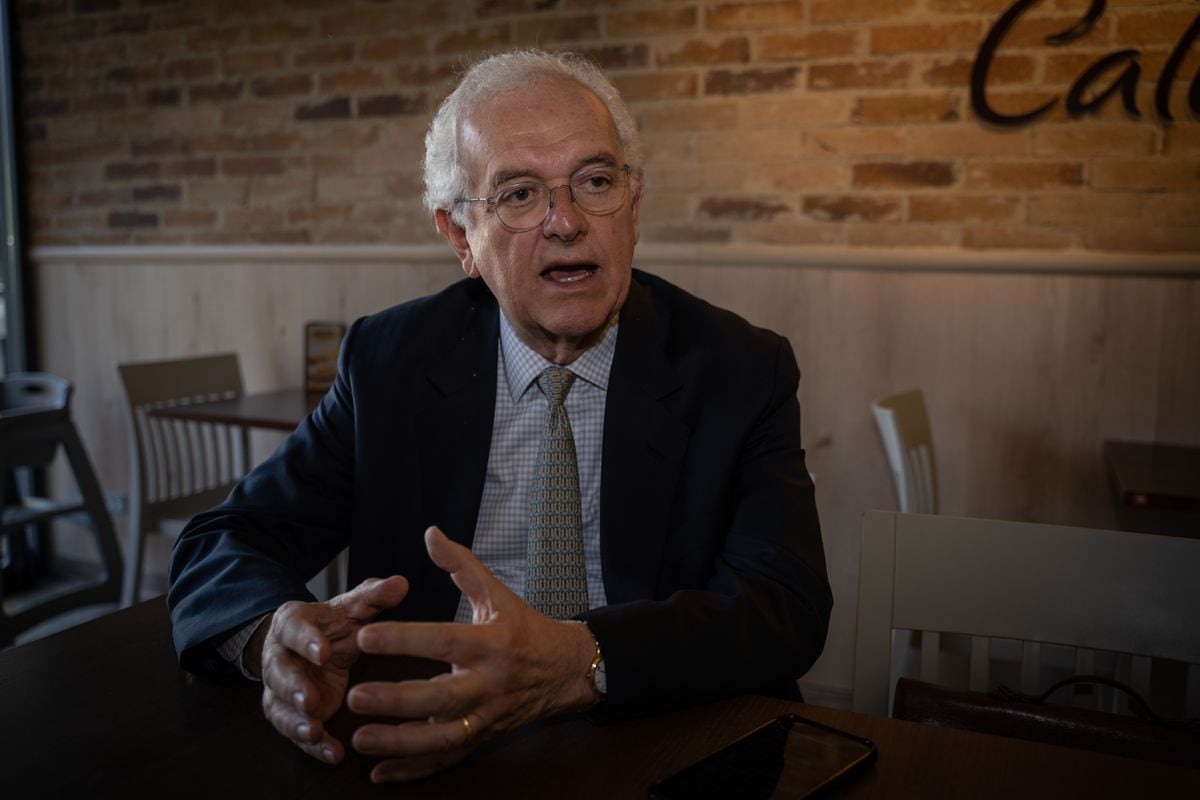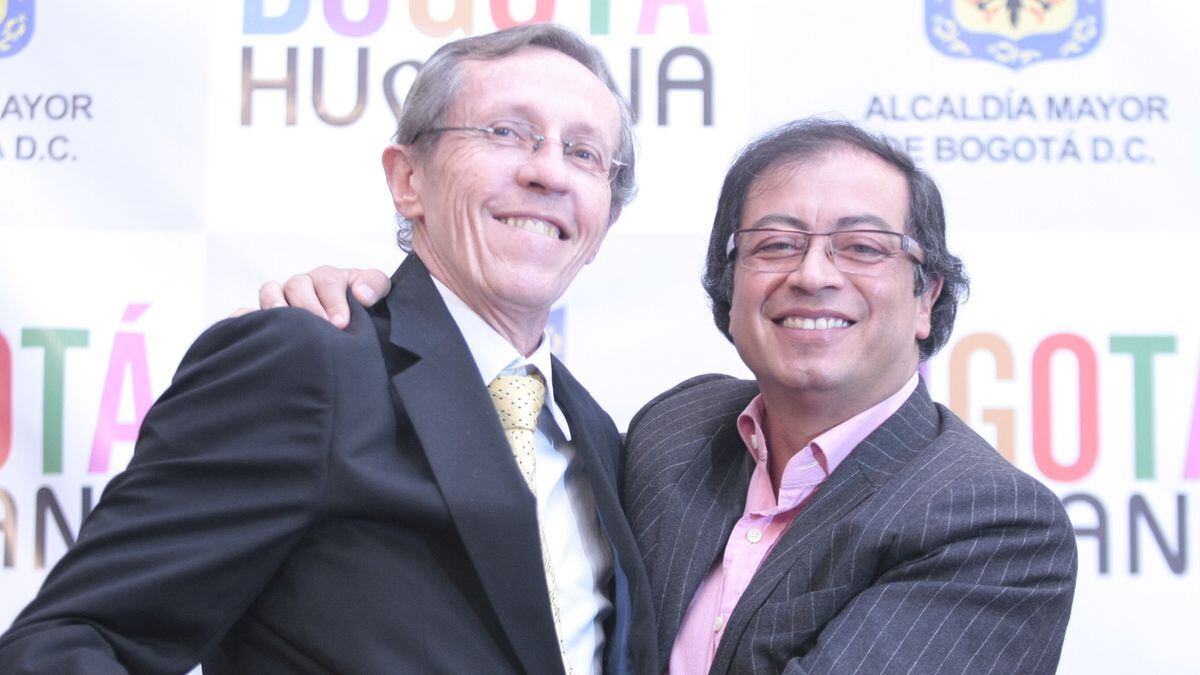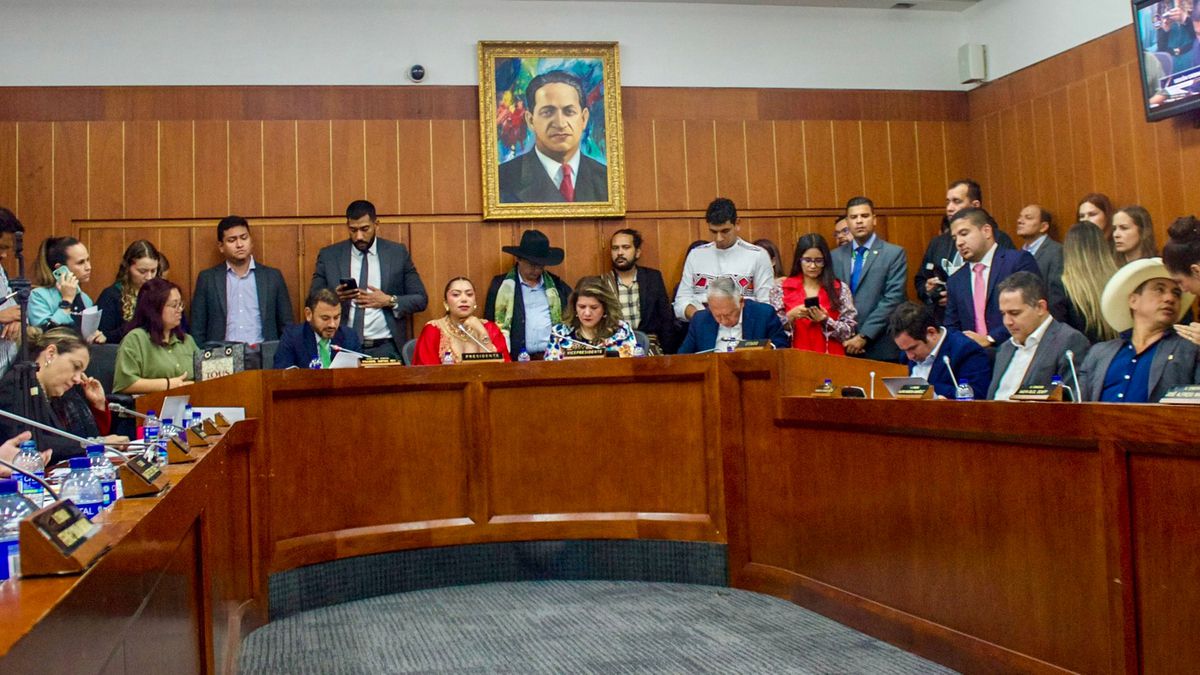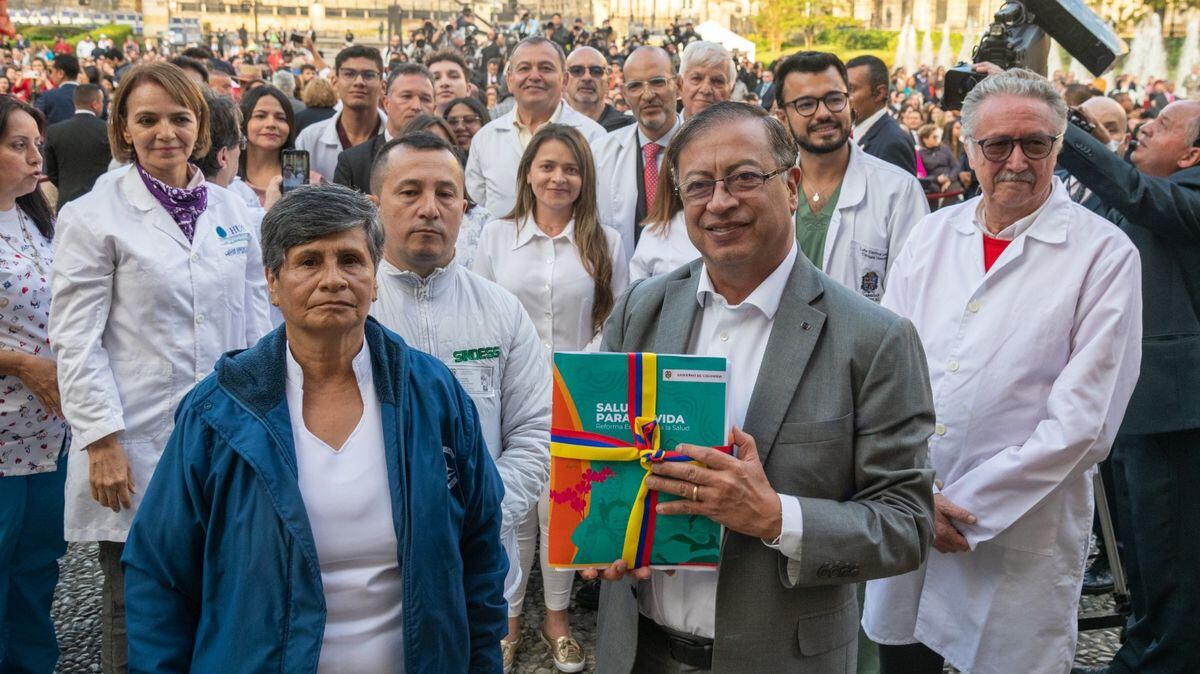"By presidential decision, the time has come to step aside," said José Antonio Ocampo this Wednesday afternoon.
The outgoing Finance Minister addressed an auditorium full of ministry officials and journalists with parting words in which he made it clear that he wanted to continue in office.
"I accepted the Ministry of Finance with the purpose of serving my country, and I want to say that I highly value this service to my country," he said.
A few hours before, after an emergency council of ministers, President Gustavo Petro had announced a very significant ministerial shake-up: he removed 7 of his 19 ministers when they had barely been in office for nine months, and replaced a multi-party Cabinet with faces that in the past had not been close to him, for a more petrist.
In this change, the president removed the two ministers who most clearly represented a social democratic technocracy, some ideas of the center or center left, Ocampo and the Minister of Agriculture, Cecilia López.
The two reportedly signed a letter criticizing the health care reform before it was presented, but they survived the previous cabinet crisis, in February, when the president removed three ministers, including the signatory of the letter most opposed to the project, Alejandro Gaviria.
Ocampo's replacement, a heavyweight in the cabinet not only because of his position but because of his influence and recognition, was the biggest surprise.
As is customary when a country turns to the left in Latin America, the expectations around the person in charge of taking the reins of the economy were enormous, and the name of this 70-year-old economist who had already been Minister of Agriculture of the liberal Ernesto Samper generated relief and tranquility both in markets and investors as well as in different political and economic sectors.
For example, for the chief economist of Credicorp Capital, Daniel Velandia, "Ocampo has been a determining factor in generating calm in the markets amid the presentation of reforms by the Government that raise concerns about their potential fiscal impact, such as the energy transition proposal and the health and pension reforms”.
Germán Arce, who was Deputy Minister of Finance and Minister of Mines under Juan Manuel Santos, and is the head of the fiduciary union, opines along a similar line: "Ocampo is a highly respected economist, who had been playing a role that gave peace of mind to the markets, committed to the fiscal rule, technical, moderate and with good dialogue.
He is a great loss, ”he states.
Ocampo, who is a tenure professor at Columbia University and was executive secretary of the United Nations arm for the development of Latin America and the Caribbean (Cepal), accepted the portfolio despite the fact that he had advised the campaign of the centrist candidate for the presidency, Sergio Fajardo.
With an economic vision linked to social democracy, which he himself has defined as the sum of neo-structuralism and the post-Keinesian school, he became a key figure in moderating the government's most strident announcements, such as those of an immediate energy transition by the Minister of Minas, Irene Vélez (who is still in the cabinet).
In the Government he had two great tasks, and in both he fulfilled.
"I leave the country a progressive tax reform", he sentenced in his parting words.
He also recalled that it is the "only progressive reform that Congress has adopted under this Government";
It was the first major reform that Petro presented, on its first day, and the only one that went ahead before the current crisis with its political allies from traditional parties.
That reform gave most analysts peace of mind, helped limit the fiscal deficit and gave the government an early victory.
Ocampo also achieved an improvement in indicators such as the interest rates paid by the State or the exchange rate, especially since October.
"We have managed to generate confidence in the country, in the country's economic management, which I hope will be consolidated and continue under my successor," he said in his farewell.
He leaves the country with a fiscal deficit on a reduction path, although inflation is not reaching its ceiling and economic growth in 2023, after two very good years, is expected to be meager.
The new minister will be Ricardo Bonilla, a renowned economist but less well known than Ocampo, and much closer to Petro than his predecessor.
Bonilla was already Secretary of the Treasury of Petro, when he was mayor of Bogotá, he has been an advisor to the current president in the last decade, and has just been the president of Findeter, a State entity that finances territorial projects, appointed by the president.
The designated minister received the announcement with recognition of Ocampo and the promise to maintain the "stability of the economy."
I was appointed by President @petrogustavo as Minister of Finance, replacing @JoseA_Ocampo.
I thank the President and I promise to fulfill the functions of the position.
I greet Minister Ocampo and acknowledge the work done.
I will maintain economic stability.
– Ricardo Bonilla (@ricardobonillag) April 26, 2023
That last message intersects with another, which Ocampo left at his farewell.
In it, he recounted that in his exit conversation he stressed to the president the importance of "compliance with the basic rules that this (stability) implies, which are work with the Bank of the Republic and respect for the fiscal rule (. ..) and that the reforms that have been made in social matters are compatible with the fiscal rule”.
Neither Petro nor Ocampo have explained the reasons for the change.
The outgoing minister explained in November why he could be uncomfortable in a government that seeks change, and he is already looking for it: “With the president one understands each other.
Obviously he has some very ambitious goals that he launched on the campaign.
So we see what can be done from here and how it can be done gradually.
Do not do it all next year, but in the four-year period.
The same as with the cabinet colleagues ”.
That role of brake or prosecution of the adjustments could take its toll.
The political meaning of her presence in a key position, and more added to that of her friend Cecilia López in Agriculture, no longer seemed to fit in with a government that is locked in her bases.
The question is whether Bonilla or someone else will fill the role of moderation and leadership in a Cabinet.
In October, the journalist Juan Pablo Calvás wondered in EL PAÍS what would happen when Ocampo left.
The answer will begin to be known.
Subscribe here
to the EL PAÍS newsletter on Colombia and receive all the latest information on the country.




/cloudfront-eu-central-1.images.arcpublishing.com/prisa/RYAE4R2YX5G7LGEJQ74SXZI47A.jpg)


/cloudfront-eu-central-1.images.arcpublishing.com/prisa/ZORZGWU62RGZNLD7HNVBXQZRBA.jpeg)







